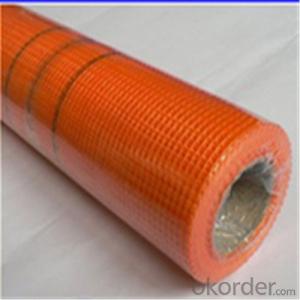Fiberglass cloth rolls are a versatile material used in a variety of industries, from construction to aerospace. These rolls of woven glass fibers are known for their strength, durability, and resistance to various environmental factors. But what exactly are fiberglass cloth rolls, and how can they be used in your projects? Let’s dive into the world of fiberglass and explore its many applications and benefits.
What Are Fiberglass Cloth Rolls?
Fiberglass cloth rolls are made from a matrix of glass fibers that are woven together to create a flexible, yet strong material. They are typically coated with a resin to enhance their strength and durability. The fibers are made from a variety of materials, including E-glass, S-glass, and aramid, each with its own unique properties and applications.
The Making of Fiberglass Cloth Rolls
The process of creating fiberglass cloth rolls involves several steps. First, the glass fibers are melted and extruded into thin strands. These strands are then woven together to form a fabric-like material. The fabric is then coated with a resin, which hardens to create a strong and stable material. This process can be customized to create different types of fiberglass cloth rolls, with varying levels of strength, flexibility, and resistance to environmental factors.
Applications of Fiberglass Cloth Rolls
Fiberglass cloth rolls have a wide range of applications, from construction and automotive to marine and aerospace. They are used in the production of boats, cars, and airplanes due to their lightweight and high-strength properties. In construction, they are used to reinforce concrete and prevent cracking. They are also used in the production of pipes, tanks, and other structures that require durability and resistance to corrosion.
Benefits of Using Fiberglass Cloth Rolls
There are several benefits to using fiberglass cloth rolls in your projects. They are lightweight, making them easy to handle and transport. They are also strong and durable, with a high resistance to corrosion and other environmental factors. Fiberglass cloth rolls are also cost-effective, as they can be used in place of more expensive materials in many applications.
How to Choose the Right Fiberglass Cloth Rolls
Choosing the right fiberglass cloth roll for your project can be a daunting task, given the variety of types and specifications available. Here are a few factors to consider when making your selection:
– Type of Fiberglass: Different types of glass fibers have different properties. E-glass is the most common and is suitable for general applications, while S-glass is stronger and more resistant to wear. Aramid fibers are used for high-strength applications.
– Weight: The weight of the cloth roll can affect its strength and flexibility. Heavier rolls are generally stronger but less flexible.
– Width: The width of the roll can impact the ease of application and the amount of material needed for your project.
– Resin System: The type of resin used can affect the curing time and the final properties of the fiberglass cloth roll.
Working with Fiberglass Cloth Rolls
Working with fiberglass cloth rolls can be a rewarding experience, but it also requires some knowledge and care. Here are some tips to help you get the most out of your fiberglass projects:
– Safety First: Always wear appropriate safety gear, including gloves, goggles, and a mask, when working with fiberglass.
– Cutting: Use sharp tools to cut the cloth rolls to size, and be sure to measure twice to avoid mistakes.
– Application: Apply the cloth rolls smoothly and evenly, ensuring there are no wrinkles or bubbles.
– Curing: Allow the resin to cure properly to achieve the desired strength and durability.
Maintenance and Care of Fiberglass Cloth Rolls
Proper maintenance and care can extend the life of your fiberglass cloth rolls and ensure they perform at their best. Here are some tips for maintaining your rolls:
– Storage: Store the rolls in a cool, dry place, away from direct sunlight and extreme temperatures.
– Handling: Handle the rolls with care to avoid damage. Use clean, dry hands to prevent contamination.
– Cleaning: If the rolls become dirty, clean them gently with a soft cloth and mild soap. Avoid using harsh chemicals that could damage the fibers.
The Future of Fiberglass Cloth Rolls
The use of fiberglass cloth rolls is expected to grow in the coming years, as more industries recognize their benefits and versatility. From renewable energy to infrastructure development, fiberglass cloth rolls are poised to play a significant role in many innovative applications.
Conclusion
Fiberglass cloth rolls are an incredible material with a wide range of applications and benefits. Whether you’re a professional in the construction or aerospace industry, or a DIY enthusiast looking for a strong and durable material, fiberglass cloth rolls are worth considering for your next project. With the right knowledge and care, you can harness the power of fiberglass and create something truly remarkable.

